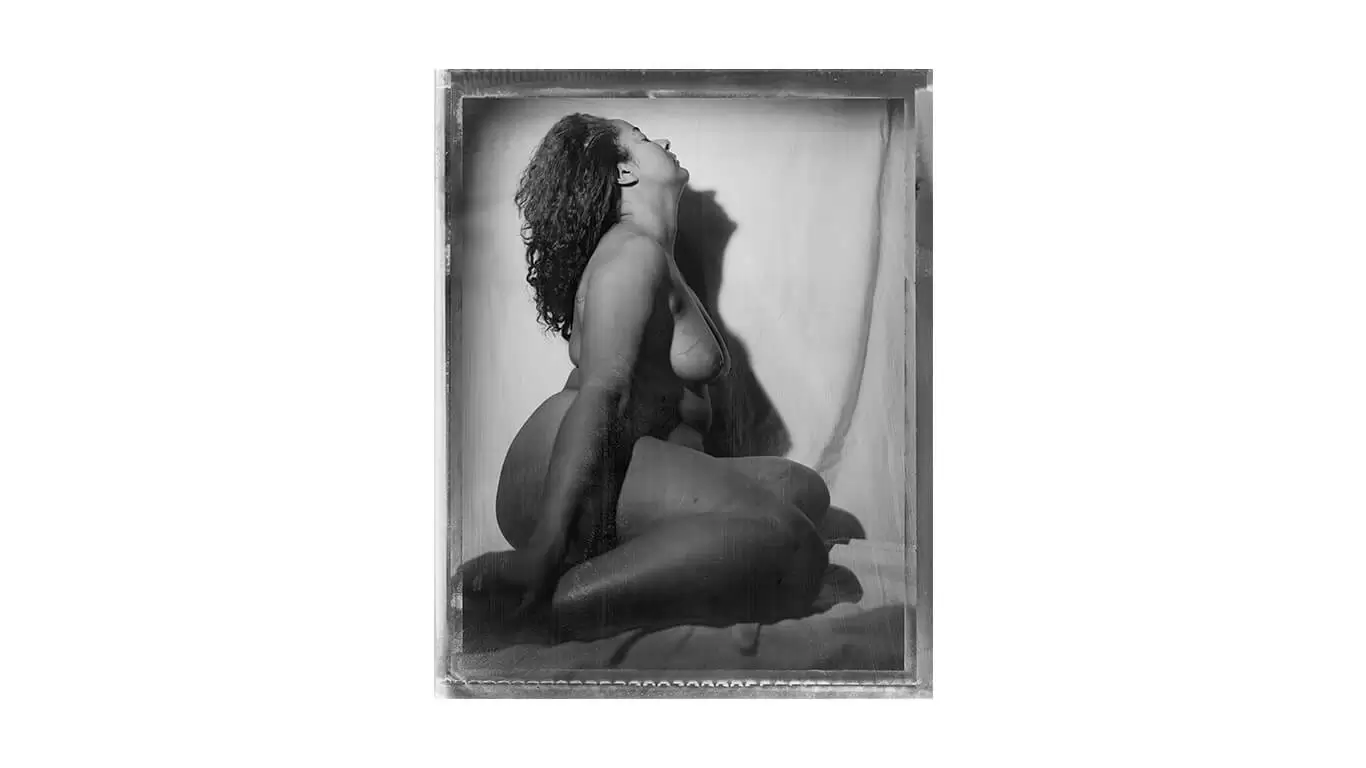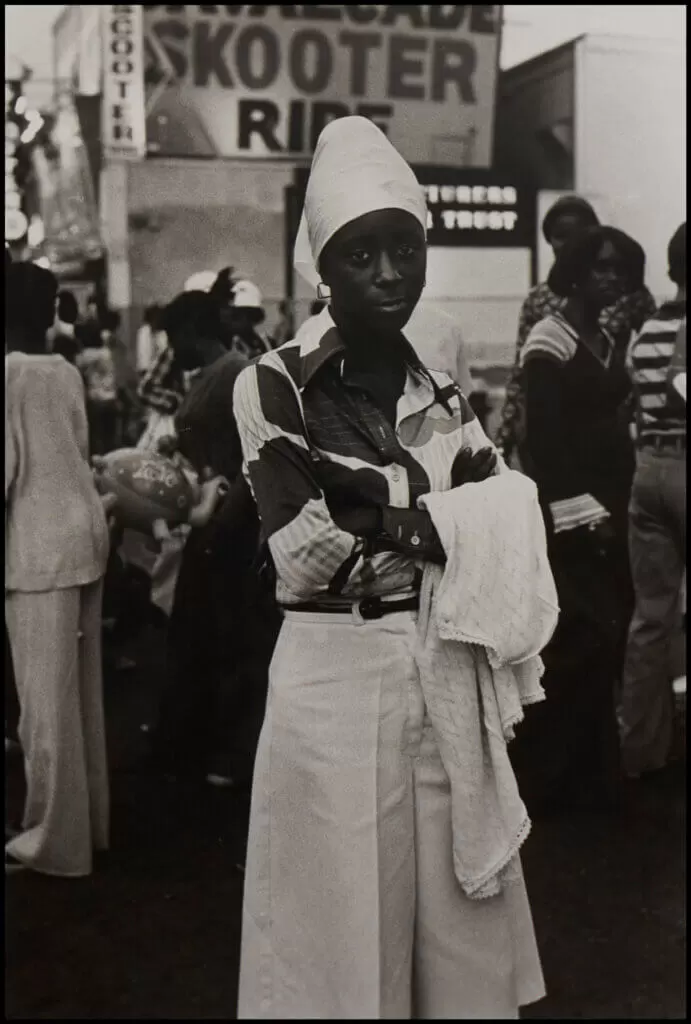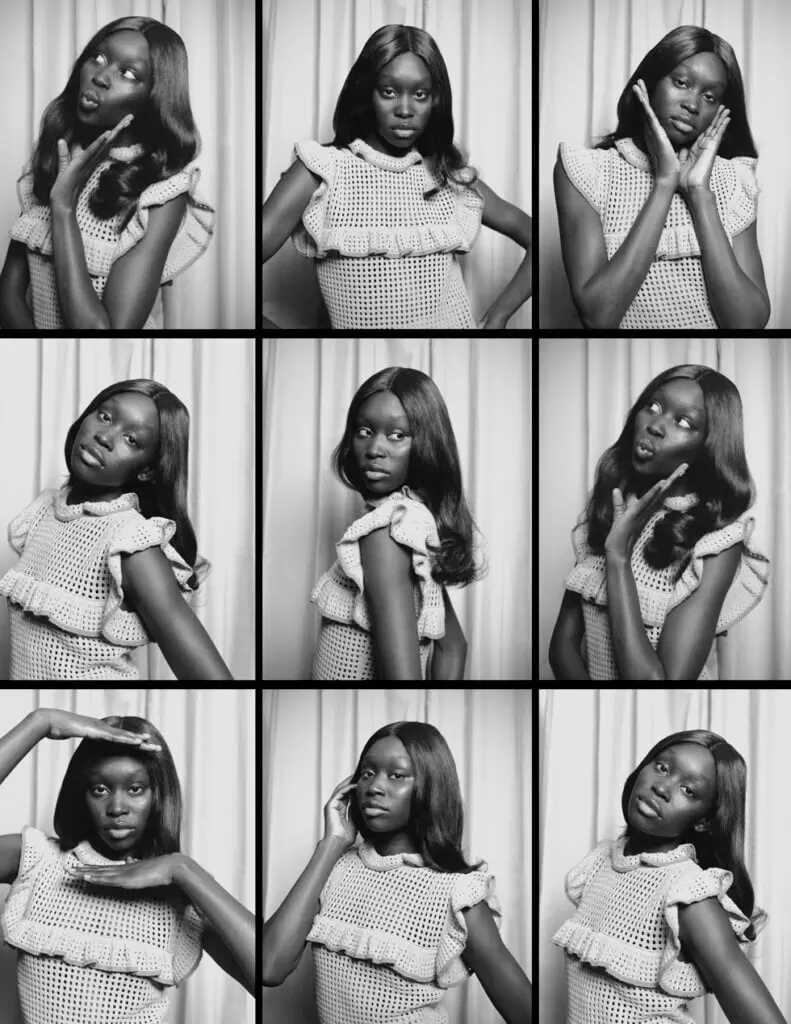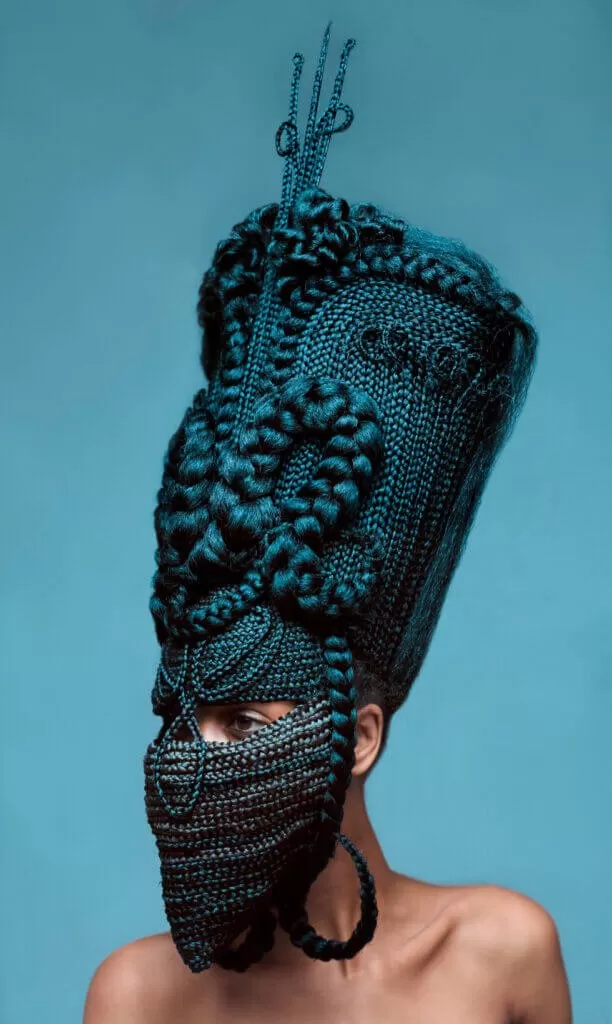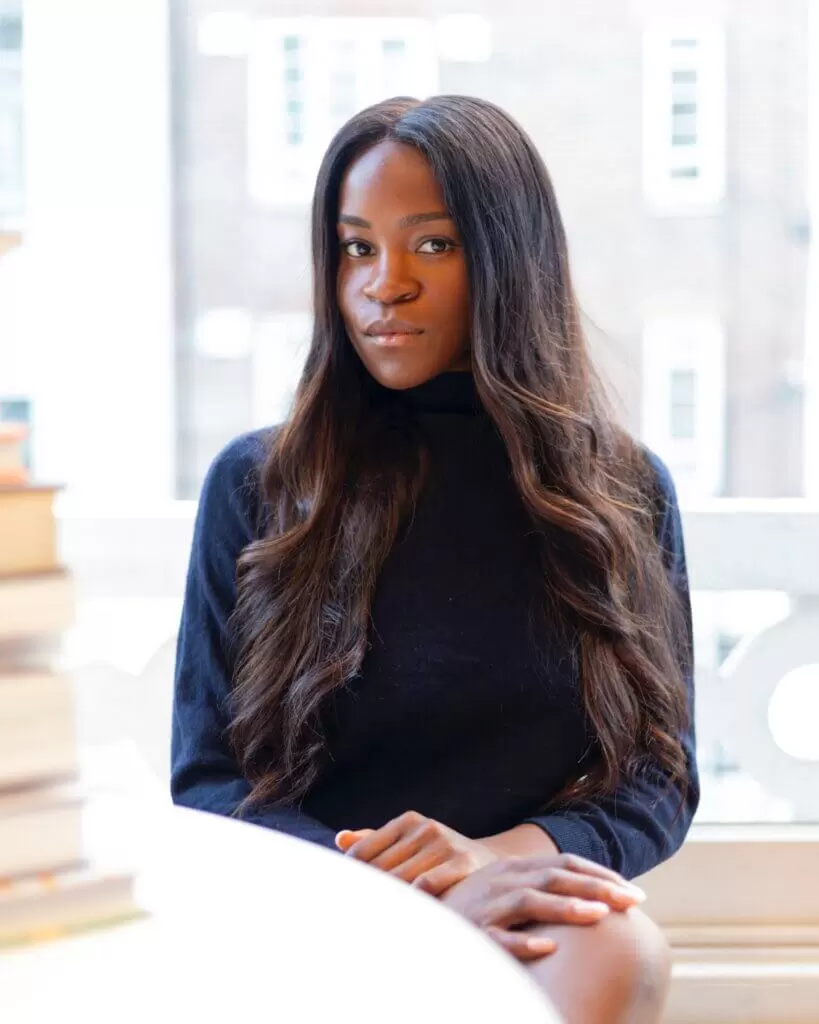BLACK VENUS: Reclaiming Black Women in Visual Culture
Curated by Aindrea Emelife
20 July – 24 September 2023
Terrace Rooms & Courtyard Rooms
Somerset House
Strand
London WC2R 1LA
Somerset House is delighted to present BLACK VENUS, an exhibition which examines the historical representation and shifting legacy of Black women in visual culture. Curated by Aindrea Emelife, BLACK VENUS brings together the work of over 20 Black women and non-binary artists to explore the othering, fetishisation and reclamation of narratives around Black femininity.
BLACK VENUS pairs over 40 contemporary and primarily photographic artworks with a selection of archival imagery, dated between 1793 to 1930, illustrating historical depictions of Black women and the caricaturing of the Black body. Exploring the many faces of Black femininity, the show’s contemporary works offer a riotous affront to a centuries-long dynamic of objectification, showcasing all that Black womanhood can be and has always been.
The exhibition mines the complex narratives of Black womanhood through the influences of three perceived archetypes: the Hottentot Venus, the Sable Venus, and the Jezebel. Through the use of these three thematic pillars, BLACK VENUS examines the shifting image of the Black woman in visual culture and the complex lived experience that informs the work of cross-generational women and non-binary artists today.
Having debuted in 2022 at New York’s Fotografiska, BLACK VENUS’s presentation at Somerset House features a new reworking of the themes with over 19 new works and 6 UK-based artists in the line-up. The exhibition opens at Somerset House, following the opening of its residency at San Francisco’s Museum of the African Diaspora (MoAD).
At the centre of the show’s thematic focus is the Hottentot Venus, a recurrent archetype throughout visual culture and the epithet given to Sarah Baartman (Ssehura, b. 1789) who, enslaved by Dutch colonists, was toured as a ‘freak show’ exhibit under this alias. BLACK VENUS contrasts archival depictions of Black women, which typify colonial-era exploitation and commodification of the Black body, with evocative portraiture by some of the most influential contemporary Black image-makers whose work deals with layered narratives of Black femininity. The presentation of these works in tandem invites viewers to confront the enduring oppression and exploitation of Black women and to witness its upheaval in the hands of today’s Black artists.
Key to Emelife’s development of BLACK VENUS’s concept is Thomas Stothard’s etching The Voyage of the Sable Venus from Angola to the West Indies (c. 1800) and its place in the long-standing exoticisation of the Black woman in visual culture. In the etching, Black beauty is framed within the context of Western classical culture, as the titular ‘Sable Venus’ rises from the sea on a half-shell, resulting in the predatory attention of the sea god, Triton. The sexual objectification of the Black woman is also exemplified in the trope of the Jezebel, explored in the exhibition through the image of performer and cultural icon, Josephine Baker. BLACK VENUS examines Baker’s own self-awareness as a tool to challenge racial prejudice, satirising Western audiences’ colonialist sexual fantasies and their narrow understanding of Black beauty.
In HOTT-EN-TOT (1994), Renee Cox explores the exhibition’s titular inspiration by posing as the Hottentot Venus. The work rejects historical depictions of Baartman in a non-confrontational side profile, with Cox instead turning her gaze towards the viewer. In Cox’s vision, the image of the Hottentot Venus defies transposition into other contexts, instead locking eyes and purposefully reclaiming agency and space. Elsewhere, Miss Thang (2009), from her psychodrama series ‘The Discreet Charm of the Bougies’, places its subject amongst the trappings and luxuries of the paradigmatic housewife. Miss Thang sees the series’ fictional character, Missy, transcend to a place of self-actualisation and enlightenment.
Multiple works in the show build upon contemporary academic discourse on the path to freedom and equity, forged by Black women. Ayana V. Jackson’s Anarcha (2017) and Black Rice (2019) offer counterimages to the cruel and dehumanising treatment of the Black women between antebellum slavery and the present day. With their subjects grounded within a nineteenth century historical period, the works present the Black woman in repose and control, while subverting colonial depictions of the forcibly laboured Black body. Jackson acknowledges a metaphorical weight fixed upon Black women and challenges the notion that fragility and vulnerability are attributes that belong exclusively to white women’s bodies.
In Carrie Mae Weems’ When and Where I Enter, the British Museum (2007), Blackness is examined by the artist as an affront to the persistence and ubiquity of European colonialism. As Weems places herself among the museum’s tourists and ionic columns, she is rendered both anonymous and markedly conspicuous: operating as an onlooker to the harvesting of diasporic histories. The manner in which we view history, subjectivity and artistic ownership is questioned by Lorna Simpson’s Photo Booth (2008). Simpson’s installation juxtaposes fifty ink drawings with a host of fifty found photographs – each a photobooth self-portrait. The photographs are at once indicative of their 1940s origins, while amorphous drawings prompt a dislocation from time and context, in search of psychological projections from the viewer.
Participating artists include: Sonia Boyce, Widline Cadet, Shawanda Corbett, Renee Cox, Delphine Diallo, Ellen Gallagher, Ayana V Jackson, Zanele Muholi, Amber Pinkerton, Tabita Rezaire, Coreen Simpson, Lorna Simpson, Ming Smith, Maud Sulter, Kara Walker, Maxine Walker, Carrie Mae Weems, Alberta Whittle and Carla Williams.
Aindrea Emelife, curator of BLACK VENUS, says: “Rather than simply putting forth a compelling group of contemporary talent, BLACK VENUS defines a legacy. At a time when Black women are finally being allowed to claim agency over the way their own image is seen, it is important to track how we have reached this moment. In looking through these images, which span different stages of history, we are confronted with a mirror of the political and socio-economic understandings of Black women at the time and how the many faces of Black womanhood continue to shift in the public consciousness.”
BLACK VENUS is curated by Aindrea Emelife and presented by Somerset House. The exhibition opens on 20 July 2023 at Somerset House, London, following its presentation at New York’s Fotografiska and San Francisco’s Museum of the African Diaspora (MoAD).
Ticketed admission is Pay What You Can.
Revisiting the themes of this exhibition with inspiring essays and beautiful reproductions, Aindrea Emelife’s new book Black Venus: Reclaiming the Gaze is published by Thames & Hudson in Spring 2024.
EVENTS:
BLACK VENUS: Aindrea Emelife in Conversation with Sharmadean Reid
This live event sees curator Aindrea Emelife in conversation with Sharmadean Reid, founder and CEO of The Stack World: a media platform for connecting mission-driven women with the goal of moving the needle on gender equality and increasing the global GDP of women’s economy. Drawing on Reid’s work advancing gender equity and social empowerment, Emelife and Reid discuss how depictions of Black women and socio-economic understandings of Blackness intersect with women’s access to leadership. The two embark on a discussion of the legacies and shifting perceptions of Black women throughout history and through to present day.
Held in the intimate environment of Somerset House’s Portico Rooms, this live event is also streamed exclusively to members of The Stack World community. Launched in 2021, The Stack World powers communities inside and outside of the workplace to support women on their leadership journey.
BLACK VENUS: Aindrea Emelife in Conversation with Sharmadean Reid takes place in the Portico Rooms, (South Wing, Somerset House) and streams online to The Stack World members on Friday 21 July 2023.
This event is in partnership with The Stack World. Further details and booking information to be announced.
BLACK VENUS x Upgrade Yourself Takeover
The BLACK VENUS x Upgrade Yourself Takeover sees the return of Somerset House’s after-hours exhibition access for young emerging and aspiring creatives. This free event, specifically designed for 18-30-year-olds looking to break into the creative industry, offers access to the newly launched BLACK VENUS exhibition, interactive talks from exhibition contributors and opportunities to network with peers and professionals in a post-show social. This unique opportunity for young creatives to gain industry insights and make meaningful connections is a fantastic way to support their journey towards building a successful career in the creative sector.
Full public programme and booking information to be announced.
©2023 Somerset House


